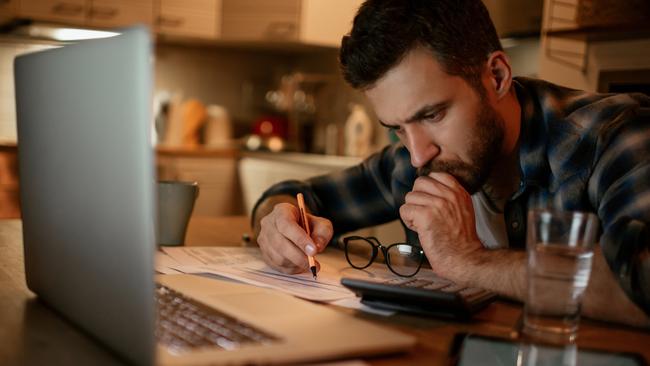How to build resilience and deal with the pandemic punches
With so much of our lives and futures now uncertain in the face of coronavirus, learning how resilience, and how to cope with anything that comes your way, is essential, writes Professor John Munro.
The coronavirus global pandemic challenges every aspect of our lives; its impact is overwhelming and frightening.
Resilience is a term which refers to how we cope emotionally with a crisis, and it counts when you are faced with questions such as: How can I cope being in self-isolation with small children? Or completely quarantined in a room for 14 days? How will I cope with losing my job or with big changes in my work conditions?
The impact of coronavirus changes every day, which means we need to be able to bounce back from each change. Some people naturally do this better than others, but you can teach yourself to be more resilient.
1) Acceptance
The first thing you need to do is to accept that the world and how we live has changed. You need to do things differently. Prepare yourself emotionally to change. This means adjust your goals for everyday living and how you will do things.
2) Recognise your feelings
Second, recognise your feelings to it and use them to your advantage. The impact of coronavirus might make you anxious, fearful, despair, angry, frustrated, desperate, or feel helpless. These might be the first feelings you have about each change. Don’t let them be your last. The resilient person balances their negative feelings with more positive ones. They don’t keep telling themselves: ‘I’m desperate and scared. I don’t know what I can do. It’s hopeless’. They replace this self-talk with: ‘I know it isn’t going to last forever. It’s scary but I’ve handled scary situations in the past.’

3) Take control
Third, take as much control as you can of your situation. This crisis brings a range of unknowns to every aspect of our lives. Some people feel they overwhelmed by it and that they’ve have lost control of aspects of their lives. To be resilient you need to re-take control of as much of your life as possible.
You can’t control the asymptomatic features of the virus, the lack of spaghetti in the supermarket or whether you have the job you had a few weeks ago. foods, our work, how we used to live. Taking control, though, includes working for yourself and your family and friends by doing things you previously didn’t have to do: growing vegetables, repairing items, using social media to contact friends, learning something new.
Try to see all that you can control each time there’s a change.
4) Take time to plan
Fourth, take time to plan how you will do things differently. This crisis has brought a raft of ‘What if….?’ questions. A plan that says what you could do in each case can help you deal with these situations as they arise. It means you have thought ahead and are less likely to be caught off-guard.
Make a list of what things are essential in your life and what things are less important. Then decide how the imposed changes will impact on the essential things. Plan how you could pursue your essentials. You can be more resilient when you have a plan for what you can do. The plan is your blueprint for ‘doing resilience’, and can be used as your plan to work out a daily routine adjusted to life in these changing conditions, for example, how you will manage practically working at home with three young children.

5) Build your self-confidence
Fifth, know that you can be successful in dealing with the challenges of this crisis. Build your self-confidence. Keep things in perspective and see that you are coping through the things you are doing.
Meditation is one way to build you self-confidence and helps you deal with the stress and other negative emotions during a time of crisis. Our negative thoughts can easily pull us into the ‘frantic stream of the crisis’ and leave us feeling helpless. Meditating helps you to ‘stop the world’ for a short period and look inward. It helps you control your thinking and feeling. You can do this by calming your negative thoughts, relaxing the tension in your body and by attending to the physical sensations of breathing.
6) Remember, you are not alone
Resilience is a social activity. It is important to remind yourself that you are not alone with the issues that confront us. Connecting and sharing your feelings, having the opportunity to be kind, empathetic, supportive, optimistic and share information, possibilities and options, as well as negative feelings, are critical for your overall wellbeing. You need to communicate with your family and friends via virtual ‘get-togethers’ such as phone calls video chat or email.
Every one of us is composing our own personal story or narrative about coronavirus. Every story has main characters, settings, a problem or issue to be resolved, how this is done and an ending. We all know the setting and the problem here. Your resilience, day by day, will determine how you respond to the crisis. We may face family and relationship problems, serious health problems, or workplace and financial stressors. Your resilience will allow you to deal with these setbacks and barriers and will be your emotional strength.
John Munro is a professor with Australian Catholic University.
